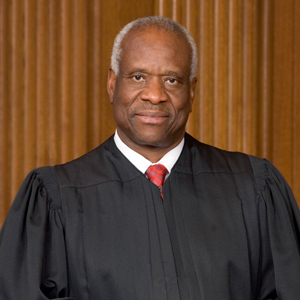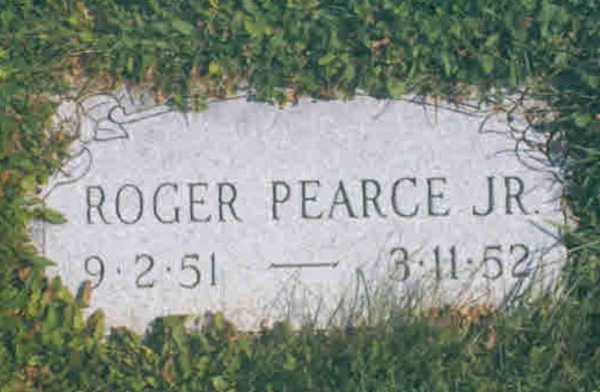Breaking his 10-year silence, Justice Thomas asks multiple questions in SCOTUS arguments on gun law

Justice Clarence Thomas
It’s been 10 years and one week since Justice Clarence Thomas asked a question during Supreme Court oral arguments.
Thomas broke his silence on Monday, report the Associated Press, CNN, HuffPost Politics, Courthouse News Service and tweets by Bloomberg BNA Supreme Court reporter Kimberly Robinson. Thomas asked multiple questions in a case considering the reach of a federal law that bars people who have been convicted of misdemeanor domestic violence from owning guns.
None of the other justices seemed surprised, according to Robinson.
Thomas asked whether any constitutional right, besides a Second Amendment right, could be suspended based on a misdemeanor. He addressed his questions to Justice Department lawyer Ilana Eisenstein in the case Voisine v. United States.
When Thomas spoke, “Everyone leaned in disbelieving,” Slate reporter Dahlia Lithwick told CNN. Courthouse News Service noted “an audible shift in the packed courtroom as the audience sat up in their chairs and members of the press scrambled for their notebooks and pens.”
Thomas spoke after Eisenstein asked if anyone had questions for her, according to the HuffPost Politics account. “That’s when Thomas, in his booming baritone, spoke up, asking a lengthy string of questions about an issue so far unexplored in the hearing,” the publication reported.
At issue in the case is whether a prior domestic assault conviction based on reckless conduct is a “misdemeanor crime of domestic violence” for purposes of the federal firearms ban, SCOTUSblog has reported. Until Thomas spoke, the Second Amendment issues had been unexplored during the arguments, according to the account by HuffPost Politics.
Thomas asked how long Second Amendment rights would be suspended for those covered by the law. Posing a hypothetical, he asked whether First Amendment rights could be suspended as a result of a conviction. “Let’s say that a publisher is reckless about the use of children … in indecent displays,” Thomas said. Could the government permanently suspend the publisher’s right of free press, he wondered.
Thomas has offered differing reasons for declining to talk in the last 10 years, but he most often says he believes the constant questions are impolite. A recent New York Times column by Supreme Court journalist Adam Liptak had urged Thomas to reconsider his silence.
Thomas “has a distinctive legal philosophy and a background entirely different from that of any other justice,” Liptak wrote. “Were Justice Thomas to talk, people would listen.”



